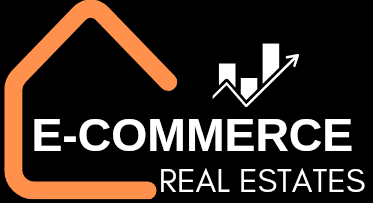Unlocking Real Estate Success: A Proven Beginner’s Guide for 2025
Table of Contents
Unlocking Real Estate Success: A Beginner’s Guide for 2025
Real estate remains one of the most dynamic and profitable industries to explore, especially in 2025. Whether you dream of owning your first home, starting a property investment portfolio, or diving into development, understanding the basics is your first step toward success. Let’s delve into the essentials for beginners and uncover strategies to accelerate your journey.
What Is Real Estate?
Real estate encompasses land, buildings, natural resources, and rights above or below the surface. The industry is divided into several sectors:
- Residential Properties – Includes single-family homes, apartments, condos, and townhouses.
- Commercial Properties – include office buildings, retail spaces, and industrial sites.
- Land – Undeveloped property or land suitable for agriculture or development purposes.
- Specialty Properties – Includes hotels, recreational parks, and mixed-use developments.
With these categories in mind, beginners can determine which area aligns with their goals and financial capacity.
Why Invest in Real Estate in 2025?
The year 2025 presents unique opportunities for property enthusiasts. Here’s why:
- Rising Demand: The global population growth and urbanization trends have increased the need for residential and commercial spaces.
- Tech-Driven Market: Digital platforms simplify property searches, virtual tours, and transactions, making it easier for beginners to navigate the market.
- Government Incentives: Many governments offer tax breaks and subsidies for first-time homebuyers and investors.
- Wealth Creation: Property remains a proven asset class for building generational wealth, with consistent appreciation over time.

The Real Estate Terminology You Must Know
Entering the industry means encountering specific jargon. Mastering these terms will boost your confidence and improve your decision-making skills:
- Appreciation: The increase in property value over time.
- Equity: The difference between your property’s market value and the outstanding mortgage balance.
- ROI (Return on Investment): ROI (Return on Investment) evaluates the profitability of your investment.
- MLS (Multiple Listing Service): A database where agents list and access properties.
- Cap Rate: The rate of return expected from a rental property.
Familiarizing yourself with these keywords will help you communicate effectively with agents, lenders, and potential buyers or sellers.
Steps to Enter the Market
1. Set Clear Goals
Define what you want to achieve. Are you looking to buy your first home, flip properties, or generate rental income? Establishing clear objectives will guide your decisions.
2. Understand Your Financial Standing
Evaluate your finances before diving in. Calculate your budget, savings, and credit score. A higher credit score can lead to better mortgage rates and loan approvals.
3. Conduct Market Research
Researching the market is non-negotiable. Focus on areas with:
- High growth potential.
- Strong rental demand.
- Favorable economic conditions.
For instance, cities experiencing tech booms or infrastructure development often present lucrative opportunities.
4. Build a Team
Partnering with experts can save you from costly mistakes. Your team should include:
- Real estate agents.
- Mortgage brokers.
- Property inspectors.
- Legal advisors.
5. Secure Financing
Explore different financing options, including:
- Conventional Loans: Ideal for buyers with good credit.
- FHA Loans: Created for first-time buyers, offering reduced down payment requirements.
- Hard Money Loans: Short-term loans for investors.
Ensure you compare interest rates, terms, and repayment conditions before committing.
6. Learn the Art of Negotiation
Negotiation is key to getting the best deals. Whether you’re buying, selling, or renting, sharpening your negotiation skills can save thousands of dollars.
7. Start Small
Beginners often benefit from starting with smaller investments, such as:
- Buying a single-family rental property.
- House hacking (living in one unit while renting others).
- Investing in Real Estate Investment Trusts (REITs).
This strategy minimizes risks and builds your confidence as you learn.
Trends Shaping the Industry in 2025
1. Sustainability and Green Buildings
Properties with energy-efficient features and eco-friendly designs are in high demand. Solar panels, smart thermostats, and sustainable materials add value to properties.
2. Smart Home Technology
Buyers and renters prioritize homes equipped with smart devices for security, convenience, and energy efficiency.
3. Remote Work Influence
The rise of remote work has reshaped housing preferences, with people opting for suburban or rural areas with larger spaces.
4. Fractional Ownership
This innovative concept allows multiple investors to own shares in a property, making high-value investments accessible to more people.
Avoiding Common Pitfalls
- Skipping Due Diligence: Always research property history, market trends, and legal requirements.
- Overleveraging: Avoid taking on too much debt, as it can lead to financial strain.
- Ignoring Maintenance Costs: Factor in expenses like repairs, property taxes, and insurance.
- Emotional Decisions: Base your choices on logic and data, not emotions.
Key Skills Every Beginner Should Develop
1. Financial Literacy
Understanding the numbers is essential. Learn to calculate:
- Mortgage payments.
- Rental income.
- Capital gains.
Books, online courses, and workshops can help you master these concepts.
2. Networking
Establishing connections within the industry can lead to new opportunities. Attend seminars, join local investment groups, and connect with professionals on platforms like LinkedIn.
3. Problem-Solving
Real estate often involves unexpected challenges. Developing strong problem-solving skills will help you navigate issues like tenant disputes, property repairs, or financing hurdles.
4. Market Analysis
Keep up with market trends, including:
- Average property prices.
- Rental demand fluctuations.
- Economic indicators affecting housing.
Exploring Advanced Strategies
1. BRRRR Method
The Buy, Rehab, Rent, Refinance, Repeat (BRRRR) strategy is popular among investors. It involves:
- Buying: Acquiring a distressed property below market value.
- Rehabbing: Renovating to increase value.
- Renting: Generating income through tenants.
- Refinancing: Leveraging the improved property value to secure a new loan.
- Repeating: Using refinanced funds for your next investment.
2. House Flipping
Flipping entails buying properties, renovating them, and selling them for a profit. Success requires careful planning, budgeting, and an eye for market trends.
3. Vacation Rentals
Platforms like Airbnb make vacation rentals a lucrative option. Focus on:
- High-tourism areas.
- Unique property features.
- Excellent customer service to garner positive reviews.
Leveraging Technology
1. Virtual Reality (VR) Tours
VR technology allows buyers to view properties remotely, saving time and enhancing convenience.
2. Real Estate Apps
Apps like Zillow, Redfin, and Realtor.com streamline property searches, offering tools for comparing prices and analyzing neighborhoods.
3. Blockchain for Transactions
Blockchain technology ensures secure and transparent transactions, reducing fraud and speeding up the process.
Building a Long-Term Strategy
1. Diversify Your Portfolio
Invest in various property types to spread risk. For instance, combine residential rentals with commercial spaces.
2. Focus on Passive Income
Prioritize investments that generate consistent income, such as multi-family homes or REITs.
3. Plan for Market Downturns
Maintain an emergency fund and avoid overleveraging to withstand economic slowdowns.
Insights from Experts
Learning from those who have succeeded is invaluable. Experts emphasize:
- Patience: Property is a long-term game; rushing into deals often leads to mistakes.
- Continuous Learning: The market evolves constantly. Stay updated through books, seminars, and networking events.
- Leveraging Data: Successful investors rely on data-driven decisions rather than emotions or guesses.
Markets to Watch in 2025
Certain cities and regions stand out for investment in 2025 due to their growth potential. Here are a few to consider:
- Austin, Texas: Known for its tech industry and population growth.
- Nashville, Tennessee: A hub for music, healthcare, and real estate expansion.
- Phoenix, Arizona: Attracting retirees and young professionals alike.
- Miami, Florida: Booming in luxury investments and international markets.
Researching these markets can uncover opportunities aligned with your goals.
FAQ: Real Estate for Beginners in 2025
1. Why Should I Invest in Real Estate in 2025?
- Real estate remains a proven way to build generational wealth.
- Opportunities include rising urbanization, government incentives, and advancements in technology that simplify market entry.
2. How Do I Choose the Right Type of Real Estate to Invest In?
- Evaluate your financial capacity and goals. Options include:
- Residential Properties: For first-time buyers or rental income.
- Commercial Properties: For higher returns but with greater risks.
- Land: For future development or agriculture.
3. What Are the Key Terms I Need to Know?
- Appreciation: Increase in property value over time.
- Equity: Difference between property market value and mortgage balance.
- ROI: A measure of profitability for investments.
- MLS: A database where agents list properties.
- Cap Rate: Expected rate of return from rental properties.
4. How Can Beginners Avoid Common Mistakes?
- Avoid overleveraging to prevent financial strain.
- Research property history and market trends to avoid surprises.
- Don’t neglect maintenance costs when budgeting.
5. What Skills Should I Develop to Succeed in Real Estate?
- Financial Literacy: Understand mortgage payments, rental income, and market analysis.
- Networking: Build connections with agents, brokers, and investors.
- Problem-Solving: Handle unexpected challenges like tenant disputes or repairs.
6. What Are the Top Trends in Real Estate for 2025?
- Sustainability and green building designs.
- Smart home technology for convenience and energy efficiency.
- Remote work driving demand for suburban and rural properties.
- Fractional ownership making high-value investments more accessible.
7. Where Can I Learn More About Real Estate?
Attend local real estate seminars or join investment groups. Books, online courses, and real estate blogs such as BiggerPockets.
Share Your Experience
There are no reviews yet. Be the first one to write one.





